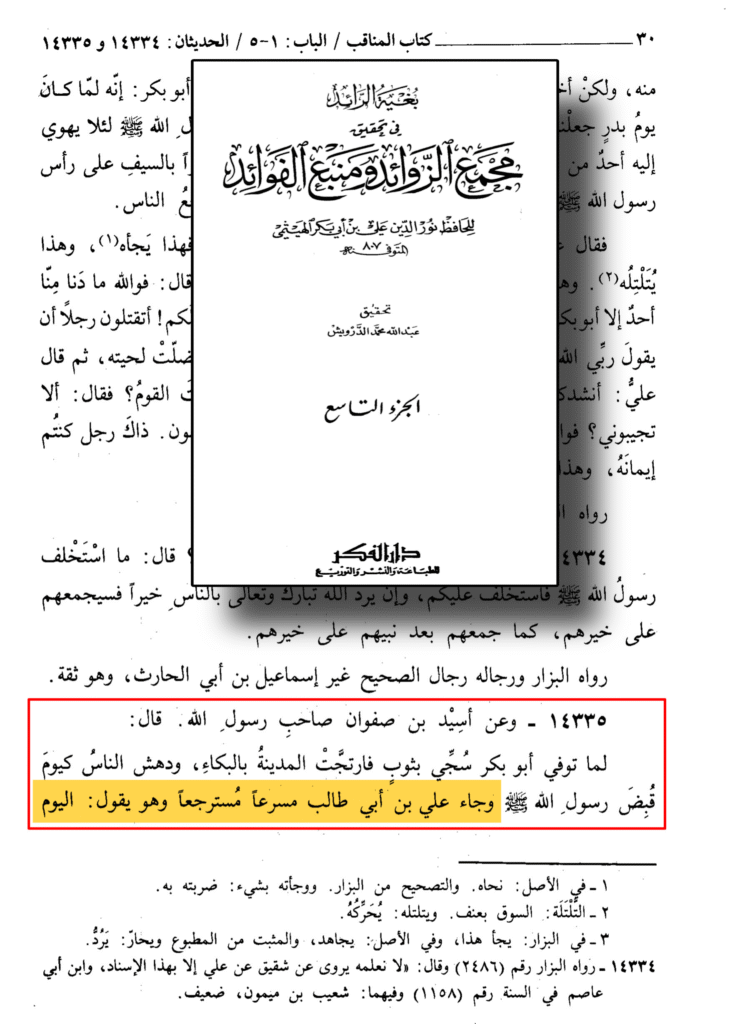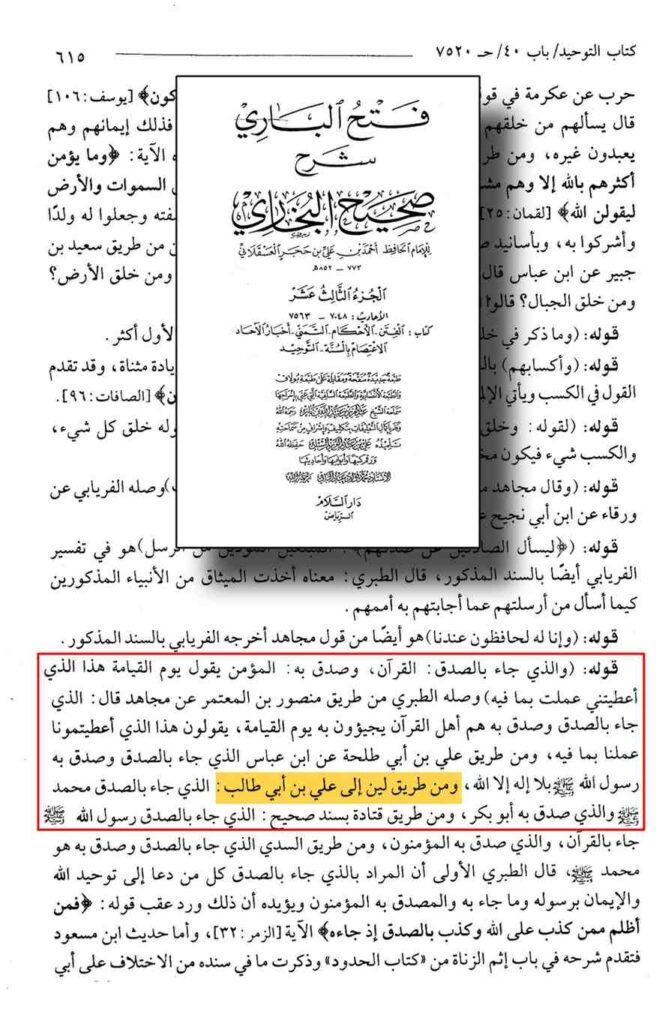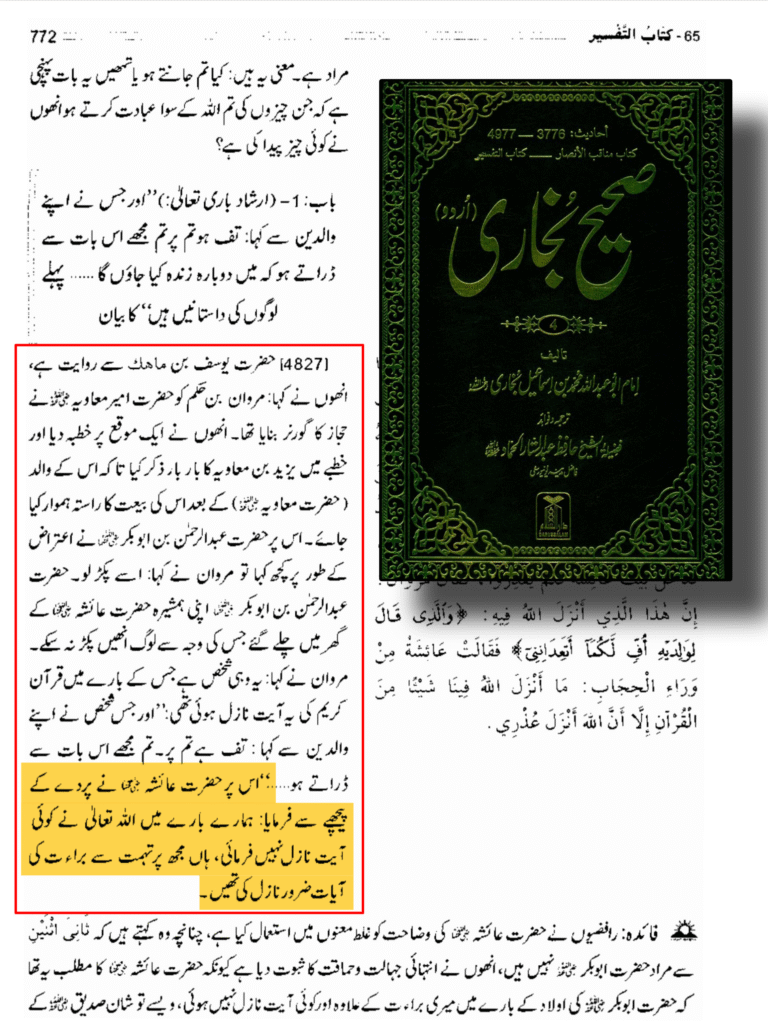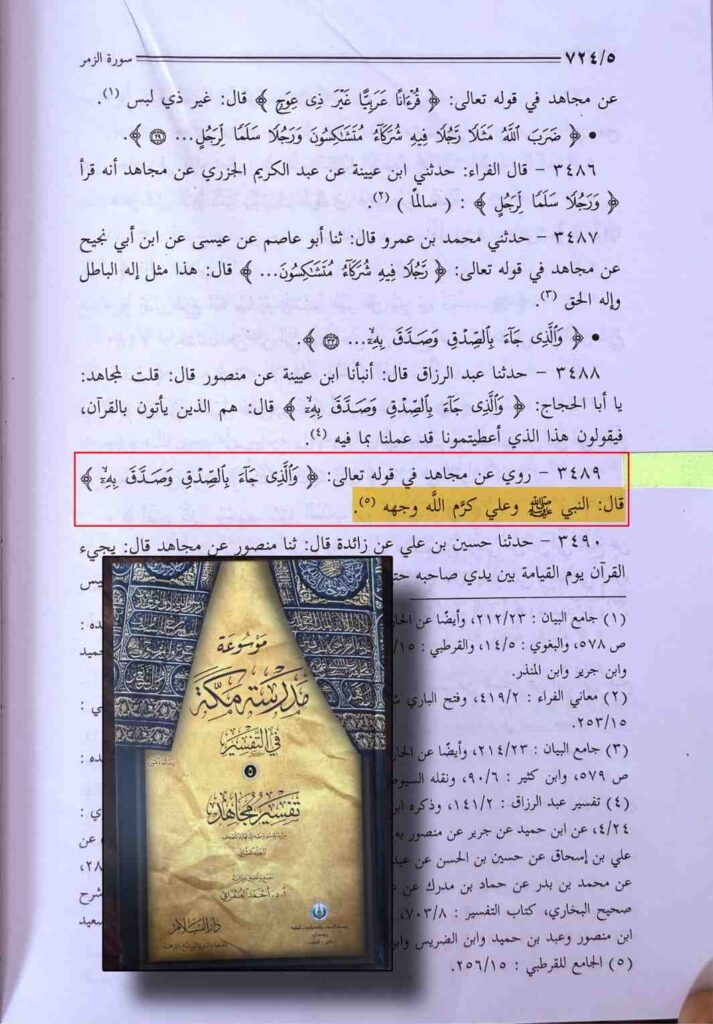![]()
![]() Allah (swt) says in Surah Az-Zumar, verse 33:
Allah (swt) says in Surah Az-Zumar, verse 33:
“وَالَّذِي جَاءَ بِالصِّدْقِ وَصَدَّقَ بِهِ أُولٰئِكَ هُمُ الْمُتَّقُونَ”
“And the one who brought the truth and believed in it—those are the righteous.”
Some Sunni exegetes have identified the second part of this verse, “وَصَدَّقَ بِهِ”, as referring to Abu Bakr. Their evidence is based on a lengthy narration found in Musnad al-Bazzar, excerpted as follows:
عن أسيد بن صفوان صاحب رسول الله ﷺ قال: لما توفي أبو بكر سجي بثوب فارتجت المدينة بالبكاء ودهش كيوم قبض رسول الله ﷺ وجاء علي بن أبي طالب مسترجعا مسرعا وهو يقول: “اليوم انقطعت خلافت النبوة… فسماك الله في كتابه صديقا فقال: “وَالَّذِي جَاءَ بِالصِّدْقِ مُحَمَّد ﷺ وَصَدَّقَ بِهِ أَبُوبَكْر”
However, Imam Al-Haythami (d. 807 AH), after quoting this narration in Majma‘ al-Zawa’id, clearly judged its chain:
“رواه البزار وفيه عمر بن إبراهيم وهو كذاب”
“It was narrated by al-Bazzar, but it includes ‘Umar ibn Ibrahim, who is a liar.”
(Majma‘ al-Zawa’id, vol. 9, pp. 30–32, no. 14335, Dar al-Kutub al-‘Ilmiyya, Beirut, Lebanon)

Similarly, Ibn Hajar al-‘Asqalani (d. 852 AH) also graded this narration as weak in Fath al-Bari:
“ومن طريق لين إلى علي بن أبي طالب…”
“It is a weak narration attributed to Ali ibn Abi Talib…”
(Fath al-Bari fi Sharh Sahih al-Bukhari, vol. 13, p. 615, Dar al-Salam, Riyadh)
![]()
![]()
![]()
![]()
![]()

![]()
Thus, it is evident that this narration is fabricated or weak, and identifying Abu Bakr as the referent of this verse is not valid. Moreover, according to Aisha, no verse was revealed concerning their family except for the incident of Al-Ifk. Muhammad ibn Isma‘il al-Bukhari (d. 256 AH) narrates clearly:
Marwan said, “It is he (`AbdurRahman) about whom Allah revealed this Verse:– ‘And the one who says to his parents: ‘Fie on you! Do you hold out the promise to me..?’” On that, `Aisha said from behind a screen, “Allah did not reveal anything from the Qur’an about us except what was connected with the declaration of my innocence (of the slander).
(Sahih al-Bukhari, vol. 4, p. 772, hadith 4827)

This narration alone refutes the assumption that any verse was specifically revealed about Abu Bakr—neither this verse (Az-Zumar: 33) nor the Cave verse.
So, who is the true referent of “صَدَّقَ بِهِ” in this verse?
The answer is clarified in Tafsir Mujahid, written by one of Abdullah ibn Abbas’s students, a renowned exegete. Ahmad al-‘Umrani quotes Mujahid:
عن مجاهد: “وَالَّذِي جَاءَ بِالصِّدْقِ وَصَدَّقَ بِهِ” قال: النبي ﷺ وعلي بن أبي طالب
Mujahid said: “The one who brought the truth” refers to the Prophet ﷺ, and “the one who confirmed it” refers to Ali ibn Abi Talib (as).”
(Tafsir Mujahid, vol. 5, p. 724, no. 3489, Dar al-Salam)
![]()

![]()
![]()
![]()
![]() Key Points from this Discussion:
Key Points from this Discussion:
- The context of the verse (Az-Zumar: 33) and statements of authentic exegetes show that it refers to the Prophet ﷺ and Ali ibn Abi Talib (as).
- Narrations claiming it refers to Abu Bakr are either fabricated or weak and have been rejected by major hadith scholars.
- Aisha’s statement, “ما أنزل الله فينا شيئاً من القرآن إلا أن الله أنزل عذري“, provides the final confirmation.
Written by: Dr. Asif Hussain Kashmiri
Compiled by: Abdullah Imami
Translated into English by the Shiapen Team
